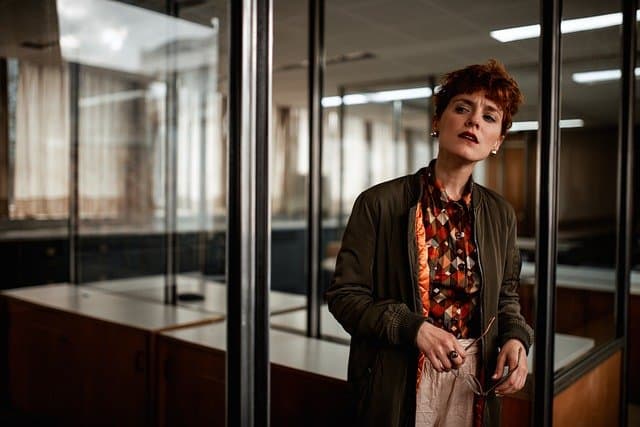Acting Practice: Putting Time Into Your Craft
Acting is a craft. To become your best you need acting practice. To become an expert, you need to practice and practice and practice (sensing a theme here?)
And when it comes to practicing, there are two key things that help you reach your acting goals: acting exercises and acting challenges.
These two tools will help you build the skills you need to succeed as an actor. They also give you a way to test your progress outside of rehearsals.
Acting practice challenges can be tedious and scary at first, but they’re crucial for pushing yourself and reaching new milestones as an actor. Reading about them beforehand can lessen their impact, too. Let’s take a look at what they are and how they play into your acting goals.

Practice Acting at Work
If you are looking to ace your audition, the scenes you need to find are going to be diverse scripts that you can practice acting at home. While you might want to practice with another actor, the exercises you consider to be ready for your performance is very important.
You need to focus on what might work for you and offer a look into the character you are about to act out. You may be wondering do actors practice along? The real answer is yes, they have to do their best without a counterpart.
What are Acting Exercises?
Acting exercises are methods of improving your acting. They’re used to build acting skills and are the foundation of any acting program. Some acting exercises are helpful because they force you to use specific skills. Others offer you acting ideas that you can explore using with your friends and colleagues.
For example, an exercise focused on facial expressions can help you better express emotions on screen or improve how you communicate with other actors. You may also find that you have perfect skills for certain exercises, but you can’t seem to use them in daily acting situations. In these situations, you want to focus on the skills you do have.
Many acting exercises are also useful for building your confidence as an actor. You can use challenges to push yourself outside of your comfort zone and force yourself to try new things. You may be afraid to do certain actions, or you may be so used to a certain technique that you’ve stopped using it. When you use exercises to build confidence and skills, you’ll feel more comfortable in front of a camera.
Why do you Need Acting Challenges?
When you first start trying new things as an actor, it can be nerve-wracking. After all, you’ve spent your life acting in familiar ways! Practices like auditions and acting challenges are great for forcing you out of your comfort zone. They’re also great for testing your progress, improving your confidence, and making you more comfortable with new skills.
Related Article: Tips to Moving to Los Angeles for Actors
Most acting practice challenges will test your skills in some way. You may be asked to try a new movement or use a certain technique in a public way. Auditions may also challenge you to use your acting in a new way. An acting challenge could ask you to use acting as a way to persuade someone or address a certain issue.
Doing Everyday Tasks as the Character as You Practice
Become a character for the day. Acting takes a different approach than words or phrases. To practice your facial expressions, you have to be in character, then do the daily work as a character. Then you can consider the way you act and the way you move your hands and you’ll be able to see the difference between the hand gesture and the hand gesture.
This is one way to keep your skills sharp and ready for your next audition. See acting practice can be fun!

Record Yourself While Acting at Home
You learn something from recording yourself, even if you hate watching the clip. It could be a good thing, or even a bad thing.. Video and audio recordings help to analyze voice, speech, and movement.
Only when one sees themselves performing can they measure the effectiveness of your style. Then you can use acting practice to further develop your ideal character. You also have the ability to see what weaknesses you are and improve them as they occur. Recorded footage can be helpful in improving your confidence and showcasing your skillset.
Read Acting Books and Get the Knowledge
There are many books about acting in shops. What books should you read first for beginners? However, many books starring renowned actors were particularly useful. You might know their qualifications and the ways they thought affect acting, theatre and cinematic work. You can also improve yourself by understanding what is seen through the lens.
Watch Other Auditions on YouTube
One of the biggest resources on the planet for actors is YouTube. You can see how actors work through their scenes and challenge yourself on how you’d do it differently. This allows you to practice acting at home while still learning how others do it. Sometimes engagement is as close as a video.
Discover Your Acting Goals
When you start an acting program, you’re probably excited about your career prospects. But what do you want to achieve as an actor? You might have goals such as getting cast in a film or making a minor career change.
Maybe you want to be a better comedic actor or a more action-oriented performer. With your acting goals in mind, you can practice more effectively. You can find your acting goals by asking yourself these questions: What do I want to achieve as an actor?
Practicing for Performance
Asking yourself these questions will help you discover your acting goals. You can also use the skills you’re developing in your acting challenges to test your progress. When you practice for performance, you’re looking to refine your skills and build confidence. You also want to test your acting in a public way so that you can see how well you’ll look on camera.
While you want to practice skills and build confidence, remember that you’re not trying to show up your acting idols. You don’t want to get better than they are—you just want to get better than you are!
Auditioning is a great time to work on skills you may have forgotten, like your body language or your expression. You may only have 45 seconds to convey a character, so you want to make sure you get across all of your personality traits.
Practice Acting at Home
When you’re working on your acting skills at home, you can do it in a way that’s more accessible to you. You can also use the same techniques to test your progress. You may find that you need to improve certain skills at home, but that you use them naturally in your daily life.
You want to focus on those skills when you practice for performance, so that you use them naturally when you need to. You may also find that a certain skill is harder to practice at home than you thought. This is common and doesn’t necessarily mean that you need to improve your skills.
Facial Expressions
When you’re developing your acting skills, facial expressions are a great place to start. When you’re practicing facial expressions, you may only have a few seconds to make an impact. This is why you want to make sure that your expression says everything that it takes to convey a certain emotion.
You can focus on facial expressions when practice acting at home. After you select a skill you’d like to work on, you can use it as a focal point while you practice different facial expressions. For example, you can use facial expressions while working on a skill such as vocal tone or body language.
Body Movements
As you consider your body language find a way to incorporate the entire actor into your practice acting. From the character perspective, you con see how your life will offer skills to enhance your world and play with your lines and scripts. It’s a way to further identify your acting career as you work out your style as a whole scene.
Acting Techniques
When practicing at home, you may find that some skills are easier to practice than others. This is common, so don’t feel discouraged! You may need to work on a certain skill more than others before you’re ready to try it in front of a camera. You may also find that certain acting techniques are easier to practice than others. This is common, too!
Some acting techniques may require you to learn a certain skill first, so that you can practice using them in public. These techniques are useful, but you want to make sure that you’re sure that you want to spend time learning them. You may find that certain techniques are easier to practice than others.
Los Angeles Here You Come
If you want to become an actor, you have to practice. You can’t just be excited to try something new and expect everything to go smoothly. You have to be serious about practicing, and that begins with the basics. Keep reading to learn more about the basics of acting, and we’ll show you some of the best practices to get you started.
If you are looking to be an actor, get into classes, practice acting at home and dream of making it big in Los Angeles one day. You can find your best characters practicing your skills alone at home refining your perfect moments
In Conclusion
One thing you want to do is practice acting even when you are alone. The only way you will get better is to work at it continuously and find that character within! It’s there and will shine when you bring it to life!

No Responses